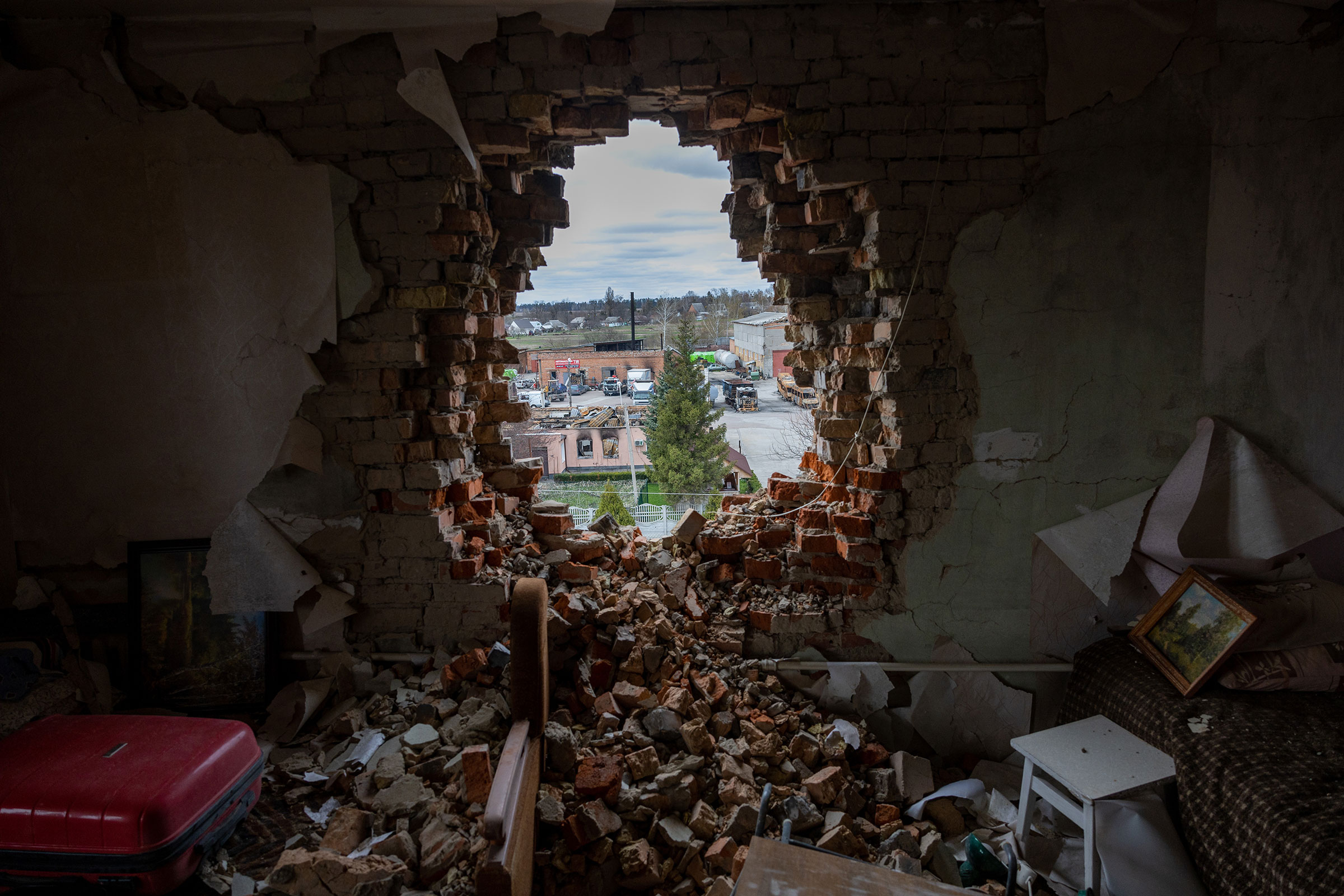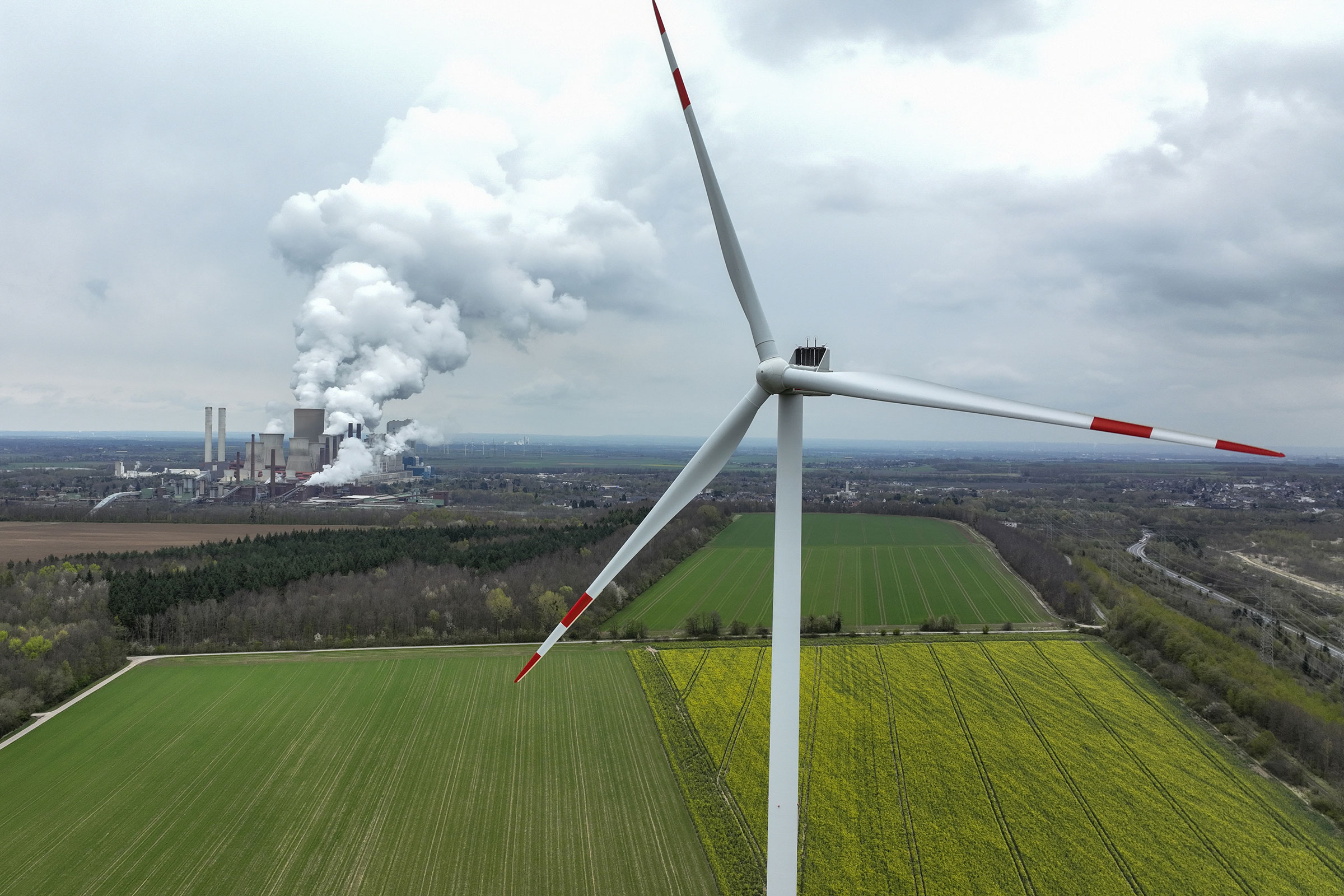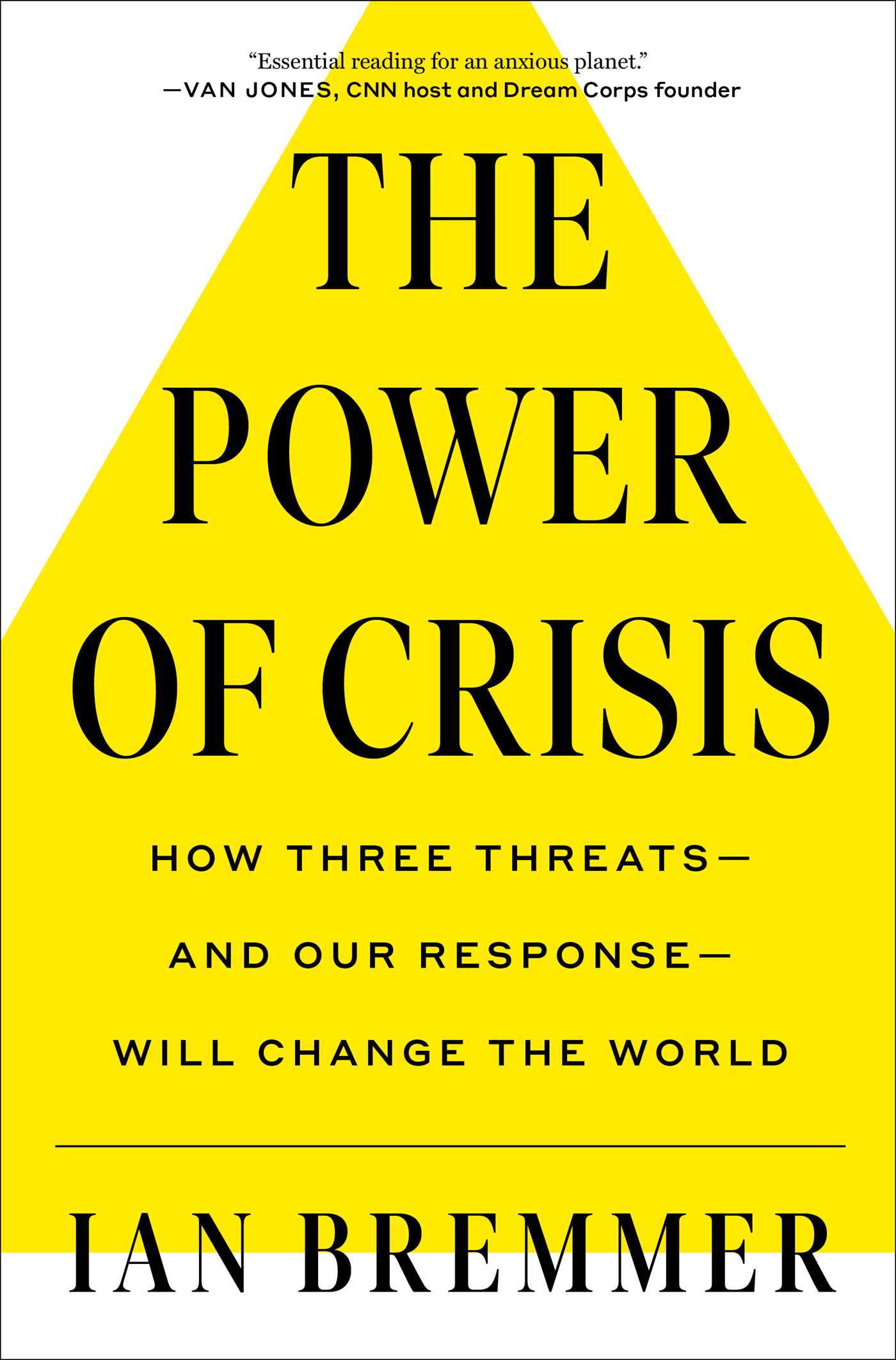
Where is the peace that the United Nations was created to guarantee?” That’s the pointed question Ukraine’s President Volodymyr Zelensky asked the U.N. Security Council during a video speech on April 5 in response to Russia’s war on his country. “Where is the security that the Security Council must guarantee?” he asked.
The urgency of his questions needs no explanation. Vladimir Putin has decided Ukraine belongs to Russia, and there are no boundaries, treaties, or warnings that will prevent him from waging war to make it so. At this point, why should Ukraine’s President, or anyone else, have much confidence that the “international community” will stop this war?
More broadly, loss of faith in governing authorities is the defining story of our era. The U.S., the only nation that can project military power into every region of the world, has become its most politically dysfunctional major power. A third of Americans say Joe Biden is not a legitimately elected President. Europeans have lost faith too. In 2016, Britain voted its way out of the E.U., and anti-establishment, xenophobic parties of the far right shifted the politics inside many European states.
In fact, the entire international system is increasingly in question. China has advanced from impoverished to powerhouse over four decades and increasingly rejects the right of Western-led institutions to make and enforce international rules. Strongmen have emerged in Russia, India, Turkey, and even E.U. members Hungary and Poland to challenge principles of freedom of the press, democratic checks and balances, and minority rights. Few in any country have faith the U.N. can do much more than help care for and feed the refugees fleeing conflicts no one can resolve.
There’s a lot to be said for the idea that crises create opportunities that mustn’t be wasted. It’s true that our world has faced a stream of shocks in recent years: the 2008 global financial crisis, the Arab Spring, the 2015–2016 tidal wave of migrants into Europe, Brexit, the rise of angry populists in Europe and America, and then the worst pandemic in 100 years. None of these events has created a new sense of unity and purpose.
Now Russia has invaded Ukraine. War is killing civilians by the thousands, more than 5 million refugees have headed west in more than two months of fighting, NATO and Russia have moved to high alert, and fuel and food prices around the world are surging.
It’s no one’s fault the system is failing. Order and disorder are cyclical forces. The U.N. and institutions like the World Bank and IMF were built atop the ashes of a war that ended 77 years ago. That’s why Germany and Japan, wealthy and dynamic free-market democracies committed to multilateralism and the rule of law, had no seats at the table for Zelensky’s speech to the Security Council—and why Russia did.
The international system is broken. To fix it, the world needs a crisis. It was the crisis of World War II that created institutions and alliances that helped keep the peace and invest in global development for decades after. Putin’s war on Ukraine has created the biggest geopolitical emergency since the Cold War’s end. The Russian government has even threatened the use of nuclear weapons and warned of World War III.
Can this crisis bolster dying institutions and create new ones?

Start with NATO. Since the Soviet collapse three decades ago, NATO has faced tough questions about its purpose. During his presidency, Donald Trump sometimes talked down NATO’s value for U.S. national security, and some of his former aides say he wanted to remove the U.S. from the alliance. In 2019, France’s President Emmanuel Macron warned of the “brain death of NATO.” Now he says that Putin’s invasion has delivered an “electric shock” and “strategic clarification” for NATO. Rather than weakening the alliance with a show of force and resolve in Ukraine, Putin looks to have persuaded Finland and Sweden to join it.
The shift in Germany is another big part of this story. The economic engine of Europe, with a government that has long tried to manage relations with Russia by cultivating cooperation through trade, has sharply changed its strategic direction in recent weeks. Three days after the Russian invasion, Chancellor Olaf Scholz announced during a historic speech to Parliament that Germany would send weapons to Ukraine, impose genuinely tough sanctions on Russia, and more than double German defense spending. His government announced in April it would stop importing Russian oil by the end of this year.
The E.U. also has a renewed sense of mission. Scorned by Britain and chastised by populists within many member countries, the E.U. has been given new energy by the war. The governments of Hungary and Poland have openly rebelled against its rules in recent years, but Russia’s invasion has forced Hungary’s Viktor Orban to curb his pro-Putin enthusiasm and presents Poland a chance to play European hero by accepting nearly 3 million Ukrainian refugees.
If these developments weren’t striking enough, consider that Putin has even given America’s Democrats and Republicans a sense of political unity that was best illustrated in March by a 424-8 vote in the House of Representatives to suspend normal trade relations with Russia and its ally Belarus. Putin has achieved the nearly unimaginable in U.S. politics: he’s persuaded many Americans to hate him more than they hate Americans of the opposite party.
We must remain realistic; the U.S., Europe, and the institutions that strengthen their partnership will face major tests in coming months and years. The U.S. is headed for yet another bitter election season ahead of midterms in November, and Americans and Europeans know that noted NATO skeptic Donald Trump may well become the Republican nominee in 2024. In Europe, the fallout from a likely prolonged military stalemate in Ukraine might change the political temperature. And though China won’t jeopardize its economic future by entering a long-term struggle with top trade partners Europe and America just to help its ally Russia, the longer-term challenges it will pose for Western values and interests is much bigger than anything Putin is likely to concoct. President Biden’s calls for unity among democracies will antagonize both China and Russia.
In short, the Ukraine crisis has boosted some Western institutions that can strengthen democracy, rule of law, and human rights at the expense of authoritarians, at least the one who works in the Kremlin, but it won’t resolve the larger crisis of confidence to solve common problems. For that, we need something bigger.
There are other crises already unfolding that will offer real opportunities to boost international cooperation—if we can learn from the mistakes of the recent past. U.S. leadership will remain limited by the bitter partisan infighting that makes the U.S. so dysfunctional, and mistrust will limit how the U.S. and China can work together.
But if they can form pragmatic partnerships in critical areas, there are others that can play vital roles in boosting global cooperation. The E.U., in particular, has shown that alliances of like-minded countries can still offer big solutions to big problems in their common interest. There are also roles for the private sector, the international scientific community, and ordinary citizens in boosting cooperation.
Even as public-health professionals and political leaders continue to wrestle with emerging variants of the virus that causes COVID-19, we might not have as much time as we think before the next pandemic strikes. Scientists have discovered dozens of lethal new pathogens in the past half-century that leaped from animals to humans, and the pace of new discoveries is rising because wild animals are more frequently coming into direct contact as people encroach on animal habitats. Unsanitary factory farming also creates greater risks of new viruses.
In fact, though SARS-CoV-2, particularly in its Omicron variant, has proved highly infectious, it’s far from the deadliest virus we’ve faced just in the past 20 years. Given how much we don’t know about the mutation of coronaviruses, it would be foolish to assume the next strain can’t be both more transmissible and more deadly.

This pandemic has created the biggest truly global crisis of our lives, and there were real breakthroughs in multinational cooperation. Scientists shared ideas and information. International cooperation on COVID-19 included the beginnings of coordination on research and a global supply chain to distribute the vaccine. Central bankers took complementary, if not coordinated, action to boost sagging economies. International lenders offered emergency help, and vaccines were developed at unprecedented speed via joint ventures. Without the COVAX project, for example, the problems of vaccine hoarding and inequality between rich and poor nations would have been even worse than they are. The willingness of some countries to export excess supplies of vaccines—as the U.S. did for neighbors Mexico and Canada, and the U.S., Japan, India, and Australia did for other countries—created a blueprint for shared sacrifice at a time of serious political and economic stress for all these countries.
But political leaders almost everywhere too often blamed and shamed scapegoats instead of rising to meet the moment in the face of invisible enemies that don’t care about boundaries. The COVID-19 pandemic, by itself, wasn’t frightening enough to make us build a new system of global public-health cooperation. Few leaders recognized that COVID-19 was a global threat that could never be effectively addressed without a global solution. In that sense, the pandemic was too small a crisis to force the kind of collaboration we needed. When the next deadly virus emerges, will we be better prepared?
Climate change is the crisis that should give us the most hope. It’s the emergency most likely to force world leaders to share more information, costs, and responsibilities, because it threatens disasters that can destroy the lives of hundreds of millions of people, with impacts felt in every region of the world. Here, as in other areas, mutual suspicion will limit U.S. leadership and U.S.-China cooperation, but there are other actors that can lead.
Europe has already made genuinely historic progress. The so-called European Green Deal has boosted Europe as a leader on climate by committing unprecedented amounts of money toward the net-zero carbon-emissions goal. By making climate spending a central pillar of its most recent budgets and COVID-19 economic-relief plans, the European Commission has boosted its own power to raise future funds for pandemic relief and climate change from reluctant member states. Only those that comply with E.U. standards on emissions and other climate-relevant policies can expect to get generous support for COVID recovery. It’s also possible that Russia’s war in Ukraine—and the need it creates to relieve European reliance on Russia for oil and gas—will spur large-scale investment in green technologies.
But progress is hardly limited to Europe. In fact, on the Intergovernmental Panel on Climate Change, 195 countries signed on to a document that accepts the climate crisis as man-made. There is now a crucial global consensus on how much and how quickly the planet is warming, on which parts of the world have been affected most, and on the scale and likelihood of long-range scenarios. The governments of the world’s biggest polluters, including the U.S. and China, have committed themselves to cutting carbon emissions to net zero. Some of the world’s biggest companies have offered public commitments of their own. In short, climate change has presented an immediate, potentially crippling global problem that has forced many governments, the private sector, and civil-society organizations to work together. But there are big unanswered questions. A certain degree of warming has already become inevitable, and governments and private-sector leaders need to accept and spend more on climate-adaptation strategies.
They also need to prepare for the economic—and, therefore, geopolitical—disruptions to come. At the moment, European leaders are putting finishing touches on a plan to end dependence on Russian oil and natural gas, but this is simply an acceleration of a process that global warming has already begun. In coming years, as rising seas and violent storms command our attention, and as green energy technologies become more affordable, the governments of countries that remain dependent on fossil fuel exports will face collapse, and as decarbonization strategies advance, these countries will export less oil and more turmoil.
The shift toward cleaner energy will transform long-standing fossil-fuel-based trade partnerships like China and Russia, and the U.S. and Saudi Arabia. That trend will shift the balance of power across entire regions and stoke conflicts that must be contained. One of the most important questions is how to prepare for a world with the tens of millions of climate refugees that will be created by the havoc from rising sea levels and increasingly erratic weather patterns. The political, economic, and humanitarian stakes couldn’t be higher.
There’s another challenge that may also amount to a crisis. A wide range of disruptive new technologies are fundamentally changing our relationships with government and with one another. They’re changing the way we think and the way we live—often in ways we don’t understand.
Even in a time of pandemic, when millions of lives depend on scientists and doctors to develop new protections and treatments quickly, we don’t inject large numbers of people with a new drug until we’ve tested it. We need to know how it will affect people, whether it will protect them, how long the protection will last, and what side effects it might have. But when we develop new algorithms that determine which ideas, information, and images we’ll ingest, the way we’ll spend money, the products we’ll buy, and how we’ll interact with other people, we do no testing at all. We allow private companies to inject all this directly into the public bloodstream.
Think of the many other ways new technologies are transforming our lives. They’re already reinventing the skills needed to earn a living, for example. We know that many workplaces are being automated, and that robots are performing a lot more jobs once held by people. But a 2019 study from the Brookings Institution found that workers with graduate or professional degrees will be almost four times as exposed to AI displacement in coming years as workers with a high school diploma.
New technologies are also changing warfare. In the coming age of autonomous weapons, war will more often be waged with the use of buttons that push themselves—by calculating how and when to strike without human oversight. In addition, cyberweapons are far more likely to be used on a large scale than far more expensive and harder to use nuclear weapons. They have already been deployed with increasingly disruptive effects in recent years, and the emerging Cold War confrontation between Russia and the West will highlight their dangers.
The primary cause for optimism won’t come from American leadership, hampered by bitter partisan divisions, or from U.S.-China cooperation, particularly in areas of fundamental ideological differences over the rights of the individual.
Fortunately, Europe is already playing a crucial regulatory role in some of these areas. On questions of data use and privacy, E.U. leaders are using the size of the European market to set rules for the globe. The world’s largest tech companies have far more power to effectively govern the digital space than any government does. Facebook, Google, Amazon, Microsoft, and Apple have all accumulated power that makes them arbiters of global affairs.
Whether the crisis that must be addressed is a new Cold War, the next pandemic, the profound disruption of climate change, or the dehumanizing power of many new technologies, there are challenges ahead that threaten our survival—but which can also form the basis for practical cooperation on important issues.
Our decisionmakers and influencers don’t have to like one another, much less agree on a single set of political and economic values. They don’t need to solve every problem. But never has it been more obvious that political leaders, the private sector, and citizens of all countries had better cooperate toward goals we can’t achieve alone. History shows it’s both necessary and possible.

Copyright © 2022 by Ian Bremmer. Adapted from the book THE POWER OF CRISIS: How Three Threats – and Our Response – Will Change the World by Ian Bremmer, published by Simon & Schuster, Inc. Printed by permission.
More Must-Reads from TIME
- Cybersecurity Experts Are Sounding the Alarm on DOGE
- Meet the 2025 Women of the Year
- The Harsh Truth About Disability Inclusion
- Why Do More Young Adults Have Cancer?
- Colman Domingo Leads With Radical Love
- How to Get Better at Doing Things Alone
- Michelle Zauner Stares Down the Darkness
Contact us at letters@time.com